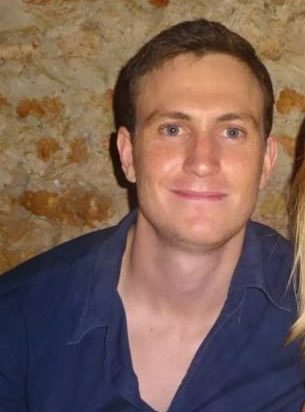From Fire Ecology to the Fortune 100: How Cameron Wills Landed a Job at IBM

When Cameron Wills attended the University of Cape Town in his home country of South Africa, he thought he had his future all figured out. He received a bachelor’s degree in zoology and botany, then pursued a master’s in fire ecology. But, by the time he finished his studies, he discovered one thing — he hated it.
He met his wife during his master’s education and the two got engaged shortly after he completed his studies. They moved to Canada, then to Austin, Texas after she received a job offer there. Cameron began day trading and worked as a bartender until the pandemic hit in 2020, and then he was out of a job.
With a lifelong interest in coding, and inspiration from his software engineering friends, Cameron decided to try his luck and enrolled in The Coding Boot Camp at UT Austin.
Finding the balance between independent and collaborative learning
Though Cameron already had seven years of higher education under his belt, attending classes online during the pandemic took some getting used to. However, he was grateful for the opportunity to fill his time with something meaningful and productive.
“The majority of the boot camp is spent on your own in a self-paced learning format,” he said. “I attended class two times a week and participated in office hours on the weekends. It’s recommended you spend at least 20 hours outside of class doing work for class, but I ended up doing around 40 or 50 because I enjoyed it so much.”
While Cameron enjoyed what he was learning in the boot camp, he did find it challenging. JavaScript was the first language taught, and Cameron still remembers how he felt during that specific lesson.
“I was thinking to myself, ‘What is happening here?’ But then I learned it, and then we moved onto something new that was even more complex,” he said. “And then I learned that, and eventually you’re able to look back and realize how much you’ve learned, and it isn’t as hard as you once thought.”
When Cameron encountered obstacles, he reached out to the various support services offered by the boot camp, including the teaching assistants, tutors, and even an online Q&A resource called AskBCS.
“Software engineering isn’t easy. There are a lot of nuances that make it very complex, but sometimes talking through code with someone, like a tutor, really helps,” he said.
In addition to the help he received from the boot camp, Cameron is also grateful for the connections he was able to make with fellow students while working on group projects.
“We were all in the same boat. If any of us had interviews lined up, we’d hop on Zoom to do interview prep or work through algorithms,” he said. “It was cool to be able to feed off of each other and help each other out.”
This ability to work with other people and develop patience and empathy is one of the greatest lessons Cameron learned in the boot camp. After completing the program, he brought this skill set to a part-time tutoring role with Trilogy — and now, he’s transferred it to his dream tech job too.
Landing a coder’s dream job
Towards the end of the boot camp, Cameron began setting up one-on-one calls with Tracy Wilson, the boot camp’s Career Services Coordinator, who provided him with helpful resources and advice for the job application process.
He found an opportunity with IBM through the Career Services recruiting arm, and landed a role as a cloud engineer working with their pre-sales garage. His team assesses various client problems and builds out an MVP (minimum viable product) for them (free of charge), in the hope that they’ll purchase the technology to further enhance their business.
“When I finally get together with another developer and start working through different ideas and solving problems, that’s where I find the most enjoyment — in the coding itself,” he said.
The boot camp helped Cameron find a sense of direction and eventually led him down a rewarding career path where he’s able to continuously learn and code each day. To future boot camp students, Cameron says not to hesitate.
“You’re going into something that’s completely foreign to you, and it’s foreign to your peers too. Focus on what you’re doing, and if you really want it — commit,” he said. “At the end of the journey, you’ll have learned all these new skills and you’ll be better for it. What more could you ask for?”
Interested in forging a new career path? Explore UT Austin Boot Camps in coding, data analytics, UX/UI, and more.

 Live Chat
Live Chat